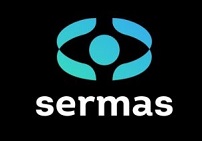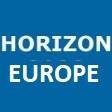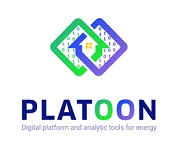The Innovation and Prototyping Lab has the task of analysing technological innovation trends and coordinating research and prototyping initiatives for innovative solutions based on new technologies, in liaison with the Information Technology function and in collaboration with external partners, supporting the transition to the industrialisation phase.
Internal testing activities are divided into two areas:
- Funded Projects Area, which manages the financing of scientific and industrial research projects on ICT topics, including social issues. The projects are identified in the light of Poste Italiane's corporate strategies, after a study phase of financing proposals at national and international level;
- Prototypical Projects Area, which deals with the execution of experimental prototypes for the creation of innovative products and services. The execution is followed by a pre-industrialisation phase, which verifies whether these prototypes can be integrated into company systems.
Below are the main activities:
- search for new funding opportunities on innovative topics for Poste Italiane's business;
- design and development of innovative solutions from funding opportunities;
- application of scientific research results to new prototype projects;
- collaboration and support to internal structures for the start-up of developed projects.
Application areas of research
Generative AI: a subcategory of artificial intelligence that uses models to generate new content such as images, text production and synthesis, music creation and other media.
Read more about Poste Italiane's AI Project
Web 3.0: The vision of a new internet iteration based on decentralised technologies, such as the blockchain. It aims to return data control to users, enabling peer-to-peer transactions and decentralised applications (dApps).
Quantum computers exploit qubits, which can represent and manipulate a combination of 0 and 1 simultaneously, allowing much faster calculations than classical computers for specific problems. Used in cryptography, complex simulations and optimisation.
Robotics: The engineering and scientific discipline that deals with the design, construction and use of robots. Robots can be programmed to perform a variety of tasks from industrial operations to surgery, and are increasingly integrated with IoT technologies to improve their autonomy and efficiency.
Funded Projects
The NOBID Project – NOrdic-Baltic eID
Funding Entity: Commissione Europea
Program: DIGITAL-2022-DEPLOY-02 “Accelerating best use of Technologies”
Topic: DIGITAL-2022-DEPLOY-02-ELECTRONIC-ID
Status: on going
Web Site: https://www.nobidconsortium.com/
Linkedin: https://www.linkedin.com/company/nobidconsortium/
CONTEXT
NOBID is part of the DIGITAL EUROPE PROGRAMME, work program part DIGITAL Europe Work Programme 2021-2022 specifically in the DIGITAL-2022-DEPLOY-02-ELECTRONIC-ID topic.
Payments are an essential part of the European Digital Identity Wallet (EDIW). Both private (finance) and public sector make major use of eID’s (Electronic IDentification). Therefore, and based on the ongoing Nordic cooperation sponsored by the Nordic council of ministers, the NOBID consortium presents a pilot focused on the payment use case, believing that it is important to prepare for the next generation of eID both in the countries that are part of the consortium and other European ones.
With the strong member-state support and involving large banks, merchants and market-leading technology vendors, that will build and test the solution while promoting the deployment, will be tested on large scale both national and cross-border use cases thanks to the committed beneficiaries coming from both private and public sector with significant experience in digital payment and digital ID.
The project aims to have around 2500 wallets downloaded, and 2200 completely enrolled users in this pilot project. Based on these estimations having 13.200 wallets transactions to be completed in a pre-production environment is achievable. Transactions will include domestic and cross border payments and support the payment neutrality ensuring retail/in-store payments are covered.
OBJECTIVES
The project is focused on piloting one of the key European Commission defined uses cases in the Payment space which addresses the authorisation of payments for products and services by the wallet user/holder. To support the payment use case the wider ambitions of cross border, multi-member state participation, the consortium includes National agencies from Norway, Denmark, Italy, Latvia and Iceland, and in addition test the payment use case in wallets from Germany.
The NOBID project includes public and private relying parties, attribute/credential and attestation providers as well as EU citizens and residents who will test the wallet’s functionalities.
The European Digital Identity Framework is to improve:
- citizen’s access to highly trusted and secure electronic identity means and trust services such as electronic signatures or attestations of attributes,
- expand citizens’ possibilities to use them to access public and private online services and
- improve their ability to control when and with whom their personal identity data is accessed or shared in a secure and privacy preserving manner.
Specifically, the project brings together member states, public and private sector stakeholders and end users with the objective of testing interoperability and scalability within national and cross borders contexts, test and trial end user journeys and collect feedback for the purposes of iterative improvement and updates to of the toolbox and reference Digital Wallet application.
The NOBID proposal fully supports the ongoing promotion of the digital wallet concept amongst stakeholders and will provide feedback, best practice and expertise to support the longer-term provision of the wallet in the future.
THE ROLE OF POSTE ITALIANE
Poste Italiane participates in the project by providing its technical and organizational skills for granting the users "on-boarding" in the Digital Wallet system.
CONSORTIUM PARTNERs
The project coordinator is Norwegian Digitalisation Agency (NORVEGIA) in cooperation with the following partner:
| Vipps AS | NO |
| iProov Netherlands B.V. | NL |
| THALES DIS CZECH REPUBLIC SRO | CZ |
| Digitaliseringsstyrelsen | DK |
| Nets Denmark A/S | DK |
| Ministry Of Finance | IS |
| Presidenza del Consiglio dei Ministri - Dipartimento per la Trasformazione Digitale | IT |
| ABI LAB-CENTRO DI RICERCA E INNOVAZIONE PER LA BANCA | IT |
| ISTITUTO POLIGRAFICO E ZECCA DELLO STATO SPA | IT |
| POSTE ITALIANE - SOCIETA PER AZIONI | IT |
| Intesi Group SpA | IT |
| INFOCERT SPA | IT |
| VIDES AIZSARDZIBAS UN REGIONALAS ATTISTIBAS MINISTRUA | LV |
| LATVIJAS VALSTS RADIO UN TELEVIZIJAS CENTRS AKCIJU SABIEDRIBA | LV |
| AS "SEB Banka" | LV |
| RIGAS TEHNISKA UNIVERSITATE | LV |
| DEUTSCHER SPARKASSEN- UND GIROVERBAND EV | DE |
| SIGNICAT AS | NO |
| Elkjøp Nordic AS | NO |
| INTESA SANPAOLO SPA | IT |
| OC Payment GmbH | DE |
| DNB Bank ASA | NO |
| Greiðsluveitan ehf. | IS |
| Auðkenni ehf. | IS |
The DC4EU Project - Digital Credentials for EUrope
Funding Entity: European Commission
Program: DIGITAL-2022-DEPLOY-02 “Accelerating best use of Technologies”
Topic: DIGITAL-2022-DEPLOY-02-ELECTRONIC-ID
Status: on going
Web Site: https://www.dc4eu.eu/
Twitter: https://twitter.com/DC4EU_project
Linkedin: https://www.linkedin.com/in/digital-credentials-for-europe-9a298025a/
CONTEXT
DC4EU is part of the DIGITAL EUROPE PROGRAMME, work program part DIGITAL Europe Work Programme 2021-2022, specifically in the DIGITAL-2022-DEPLOY-02-ELECTRONIC-ID topic.
Europe is facing unprecedented changes, in which digital transformation and the green transition are two key backbones of Europe's future. The revision of the eIDAS trust framework, one of the pillars of the European Union, which has laid the foundations of identity and trust in the digital world, extends its scope of competence beyond identity, encompassing the electronic attestation of attributes (EAA). Establishing the technical measures, the processes and procedures for establishing trust frameworks in sectoral areas will be key to the construction of Europe. In this sense, DC4EU will focus on identifying and applying all these aspects in the fields of Education (Ed) and Social Security (SS). Specifically, the issuance of educational credentials and professional qualifications in the Ed sector, and the issuance of the portable document A1 (PDA1) and the European Health Insurance Card (EHIC) in the SS sector.
The project aims to create and test a scalable and interoperable system between Member States and Stakeholders for using the new European digital identity (EUropean Digital Identity Wallet, EUDIW).
To this end, numerous use cases will be developed and tested, involving both the public and private sectors, in different contexts based on an architecture and a framework that must be aligned with the ARF 2.0 scheme (Architecture and Reference Framework for the European Digital Identity) in the process of publication.
OBJECTIVES
The European Digital Identity Wallet (EUDIW) will be a key element of hybridization for cross- sectoral and cross-border use cases (Identity, Signature, educational credentials and Social Security). Beyond the development of the Large Scale Pilots (LSPs) and the recommendations for issuing institutions, relying parties, Member States (MS) and citizens, DC4EU will contribute to a new paradigm to citizens in the field of education and social security.
The project’s main objective is to support cross-border, large-scale piloting of the EUDIW in compliance with the EU Toolbox process by 82 organizations from 23 countries (21 EU MS + Norway and Ukraine as observers) with the aim of achieving the highest impact possible. For this purpose, it will develop 4 use cases (UCs) for educational credentials, professional qualifications (Ed UCs), Portable Documents A1 (PDA1) and EHIC from the social security domain (SS UCs).
The objective’s achievement will be measured on the basis of: number of wallet issuing countries involved, number of wallet users, involvement of education and social security domain-related institutions, wallet transactions fulfilled, qualified electronic signatures issued and number of countries that will interface the wallet in pre-production systems.
Interoperability and scalability will be tested in the national domain and in multiple cross-border contexts, with the purpose of providing feedback to the European Commission (EC) and MSs for iterative updates.
The local and high-level impact focus of the project will help advance electronic identification systems and notification schemes, helping the future regulatory frameworks achieve their potential in terms of effectiveness by improving the current low uptake and limited coverage of notified eID schemes (59% of the population) in the European Union.
It will successfully enable cross-border recognition of government electronic identification through Qualified Electronic Attestations of Attributes with material legal effect
With the assistance of trust services, this will contribute to the promotion of key public services and strengthen competition in the single market.
THE ROLE OF POSTE ITALIANE
Poste Italiane participates in the project by providing its technical and organizational skills for contributing to the activities of adopting a digital identity solution, analysis and design of the wallet ecosystem that will contain the identities, verifying consistency and alignment with the 'ARF and all related issues emerging from the work of the EU Commission.
CONSORTIUM PARTNERs
The project coordinator is MINISTERIO DE ASUNTOS ECONOMICOS Y TRANSFORMACION DIGITAL (SPAGNA) in cooperation with the following partner:
| CONFERENCIA DE RECTORES DE LAS UNIVERSIDADES ESP | ES |
| ABRICA NACIONAL DE MONEDA Y TIMBRE-REAL CASA DE | ES |
| MINISTERIO DE INCLUSIÓN, SEGURIDAD SOCIAL Y MIGRAC | ES |
| CHVERBAND DER SOZIALVERSICHERUNGSTRAGER | AT |
| Sozialversicherungsanstalt der Selbständigen | AT |
| BANQUE CARREFOUR DE LA SECURITE SOCIALE | BE |
| SMALS | BE |
| OFFICE NATIONAL DE SECURITESOCIALE*RIJKSDIENST VO | BE |
| Health Insurance Bureau | CZ |
| DANMARKS TEKNISKE UNIVERSITET | DK |
| STYRELSEN FOR ARBEJDSMARKED OG REKRUTTERING | DK |
| EUROPEAN CAMPUS CARD ASSOCIATION | IE |
| EUROPEAN UNIVERSITY FOUNDATION-CAMPUS EUROPAE | LU |
| VALTIOVARAINMINISTERIO | FI |
| Digi- ja väestötietovirasto | FI |
| OPETUSHALLITUS OPH | FI |
| GovPart GmbH | DE |
| Deutsche Rentenversicherung Bund | DE |
| AKADIMAIKO DIADIKTYO | EL |
| ETHNIKO KENTRO EREVNAS KAI TECHNOLOGIKIS ANAPTY | EL |
| NATIONAL INFRASTRUCTURES FOR RESEARCH AND TECHN | EL |
| NEUMANN JANOS NONPROFIT KOZHASZNU KORLATOLT | HU |
| GENERALZOLLDIREKTION | DE |
| DEPARTMENT OF SOCIAL PROTECTION | IE |
| ISTITUTO POLIGRAFICO E ZECCA DELLO STATO SPA | IT |
| POSTE ITALIANE - SOCIETA PER AZIONI | IT |
| 123c Consulting MB | LT |
| UZDAROJI AKCINE BENDROVE SKAITOS KOMPIUTERIU SEV | LT |
| PUBLIC INSTITUTION EDELIVERY LTLTAffiliated31Systems integration solutions, UAB | LT |
| THE COMMONWEALTH CENTRE FOR CONNECTED LEARNI | MT |
| GEANT VERENIGING | NL |
| SIDN Business BV | NL |
| SURF BV | NL |
| VECOZO B.V. | NL |
| MINISTERIE VAN ONDERWIJS, CULTUUR EN WETENSCHAP | NL |
| DIGITALISERINGSDIREKTORATET | NO |
| SIKT - KUNNSKAPSSEKTORENS TJENESTELEVERANDOR | NO |
| MAIEUTICA COOPERATIVA DE ENSINO SUPERIOR CRL | PT |
| FUNDATIA PENTRU CULTURA SI INVATAMANT IOAN SLA | VR |
| CERTSIGN SA | RO |
| INSTITUTUL NATIONAL DE CERCETARE-DEZVOLTARE IN IN | RO |
| UNIVERSITATEA POLITEHNICA TIMISOARA | RO |
| UNITATEA EXECUTIVA PENTRU FINANTAREA INVATAMANT | RO |
| MINISTRSTVO ZA GOSPODARSKI RAZVOJ IN TEHNOLOGIJO | SI |
| ATOS SPAIN SA | ES |
| Consejo General de Colegios Oficiales de Médicos | ES |
| Consorci Adminitració Oberta de Catalunya | ES |
| 50LOGALTY SERVICIOS DE TERCERO DE CONFIANZA SL SME | ES |
| UNIVERSIDAD DE ALCALA | ES |
| UNION PROFESIONAL | ES |
| UNIVERSIDAD AUTONOMA DE BARCELONA | ES |
| UNIVERSIDAD DE MURCIA | ES |
| UNIVERSIDAD NACIONAL DE EDUCACION A DISTANCIA | ES |
| UNIVERSIDAD POLITECNICA DE MADRID | ES |
| UNIVERSITAT DE BARCELONA | ES |
| THE SWEDISH SOCIAL INSURANCE AGENCY FORSAKRINGS | SE |
| VETENSKAPSRADET - SWEDISH RESEARCH COUNCIL | SE |
| Stiftelsen för Internetinfrastruktur | SE |
| RISE RESEARCH INSTITUTES OF SWEDEN AB | SE |
| SOCIALSTYRELSEN | SE |
| Ladokkonsortiet | SE |
| Finansiell id-teknik bid ab | SE |
| MINISTERE DE LA DIGITALISATION | LU |
| COFAC COOPERATIVA DE FORMACAO E ANIMACAO CULT | PT |
| UNIVERSIDADE DO PORTO | PT |
| Administraçào Pùblica-Instituto Pùblico | PT |
| ADMINISTRACAO CENTRAL DO SISTEMA DESAUDE IP | PT |
| UNIVERSIDAD CARLOS III DE MADRID | ES |
| NARODOWY FUNDUSZ ZDROWIA | PL |
| Swedish Agency for Digital Government | SE |
| Gataca España | ES |
| ENTIDAD PUBLICA EMPRESARIAL RED.ES | ES |
| ALMA MATER STUDIORUM - UNIVERSITA DI BOLOGNA | IT |
| MINISTRY OF DIGITAL TRANSFORMATION OF UKRAINE | UA |
| MINISTRY OF EDUCATION AND SCIENCE OF UKRAINE | UA |
| UNIVERSITAT ROVIRA I VIRGILI | ES |
| NAUKOWA I AKADEMICKA SIEC KOMPUTEROWA – PANSTW | PL |
| OSRODEK PRZETWARZANIA INFORMACJI-PANSTWOWY IN | PL |
| UNIVERSITE DE LILLE | FR |
| MINISTERIO DE UNIVERSIDADES | ES |
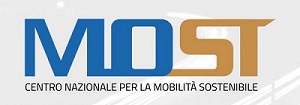
The MOST - National Centre for Sustainable Mobility project
Funding Body: European Union
Status: In progress
Website: https://www.centronazionalemost.it/
Linkedin page: https://www.linkedin.com/company/centronazionalemost/?originalSubdomain=it
REFERENCE SITUATION
The Ministry of Universities and Research, in connection with the promotion of intervention proposals for the strengthening of research facilities and the creation of 'national champions' for research and development on a number of 'key enabling technologies', has allocated funding of EUR 1.6 billion through the NRRP. In particular, the call aims to create five national centres dedicated to frontier research in technological fields such as Mobility, Agritech, Biodiversity, Life science, Genetics and Data Management.
Poste Italiane in particular was invited by the Politecnico di Milano and other associated universities to become a founding partner of the new National Frontier Research Centre for Sustainable Mobility ('CNMS').
The National Centre for Sustainable Mobility focuses on the research and development of inclusive, sustainable, decarbonised mobility through the acceleration of new technologies for infrastructure and services.
The National Centre aims at pursuing and achieving the strategic goals of the NRRP in relation to the energy transition and digitalisation of the country.
Through collaboration with 24 universities, the CNR and 24 large companies, the MOST - National Centre for Sustainable Mobility has as its mission the implementation of modern, sustainable and inclusive solutions for the entire country. The Innovation team participates in the MOST project in some specific areas, such as: Advanced Air Mobility, Connected and Autonomous Vehicle, Freight and Logistics and Light Vehicle and Active Mobility. Together with Poste Italiane, the National Centre for Sustainable Mobility (MOST) will make the mobility system 'greener' as a whole and more 'digital' in its management.
OBJECTIVES
The National Centre for Sustainable Mobility MOST will make the mobility system 'greener' as a whole and more 'digital' in its management. It will do so through lightweight solutions and electric and hydrogen propulsion systems, digital systems for accident reduction, more efficient solutions for public transport and logistics, and a new model of mobility as a service, accessible and inclusive.
The project's mission is to implement modern, sustainable and inclusive solutions for the entire country. The project's main areas and technological fields of interest are air mobility, sustainable road vehicles, waterborne transport, rail transport, light vehicles and active mobility.
Poste Italiane participates in 4 SPOKE:
- SPOKE 1 ADVANCED AIR MOBILITY (AAM)
- SPOKE 5 LIGHT VEHICLES AND ACTIVE MOBILITY
- SPOKE 6 CONNECTED AND AUTONOMOUS VEHICLES (CAV)
- SPOKE 10 FREIGHT TRANSPORT AND LOGISTICS
THE ROLE OF POSTE ITALIANE
As a Founding Partner, Poste has the opportunity to direct research and innovation activities in line with its medium-/long-term development objectives and with access to specific and highly qualified expertise.
| Public Bodies | Private Entities |
|---|---|
| 1. Milan Polytechnic | 1. Almaviva S.p.A. |
| 2. Alma Mater Studiorum - University of Bologna | 2. A2A S.p.A. |
| 3. National Research Council | 3. Accenture S.p.A. |
| 4. Bari Polytechnic | 4. Angel Holding S.r.l. |
| 5. Turin Polytechnic | 5. Atos Italia S.p.A. |
| 6. University of Bergamo | 6. Autostrade per l’Italia S.p.A. |
| 7. University of Modena and Reggio Emilia | 7. Brembo S.p.A. |
| 8. University of Naples Federico II | 8. C.R.F. S.C.p.A. |
| 9. University of Rome Sapienza | 9. ENI S.p.A. |
| 10. University of Brescia | 10. Ferrari S.p.A. |
| 11. University of Cagliari | 11. Ferrovie dello Stato Italiane S.p.A. |
| 12. University of Cassino and Southern Lazio | 12. Fincantieri S.p.A. |
| 13. University of Florence | 13. FNM S.p.A. |
| 14. University of Genoa | 14. GE Avio Aero s.r.l. |
| 15. University of Milan Bicocca | 15. Hitachi Rail STS S.p.A. |
| 16. University of Naples Parthenope | 16. Intesa Sanpaolo S.p.A. |
| 17. University of Padua | 17. Iveco Group N.V. |
| 18. University of Palermo | 18. Leonardo S.p.A. |
| 19. University of Parma | 19. Pirelli Tire S.p.A. |
| 20. University of Salerno | 20. Poste Italiane S.p.A. |
| 21. University of Turin | 21. SNAM S.p.A. |
| 22. Mediterranea University of Reggio Calabria | 22. Teoresi S.p.A. |
| 23. University of Salento | 23. Thales Alenia Space Italia S.p.A. |
| 24. University of Pisa | 24. UnipolSai Assicurazioni S.p.A. |
| 25. Marche Polytechnic University |

Funding Entity: European Commission
Program: H2020-EU.2.1.1. - INDUSTRIAL LEADERSHIP - Leadership in enabling and industrial technologies - Information and Communication Technologies (ICT)
Status: Completed
Web Site: https://www.indimoproject.eu/
Twitter: https://twitter.com/INDIMO_H2020
Pagina Linkedin: https://www.linkedin.com/company/indimo-h2020/about/
CONTEXT
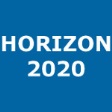
INDIMO is part of the H2020-EU.3.4. - SOCIETAL CHALLENGES - Smart, Green And Integrated Transport program, specifically in the MG-4-5-2019 - An inclusive digitally interconnected transport system meeting citizens' needs topic.
The rapid expansion of digital solutions for the management of mobility and logistics systems, together with the digital information provision, have allowed the emergence of the "connected traveler", who can independently make decisions on travel routes, modes and departure times based on multimodal route planning and provide immediate feedback on service quality or problems via connected mobile devices. Furthermore, the digitization and proliferation of information and communication technologies (ICT) have stimulated the emergence of disruptive technologies and business models such as on-demand mobility and logistics solutions.
Connected smartphones have also enabled new on-demand logistics services, which offer customers the possibility to order, track and receive goods when and how it is convenient for them. At the same time, crowdsourcing delivery services have also opened up many possibilities for social innovation and new business models in which people can easily become part of the logistics chain.
NDIMO aims to provide, through innovative services, an answer to address the key challenges of logistics in environmental, organizational and social cohesion terms.
The project aims to create a user-centered digital transport system, in which the needs of all parts of society are taken into consideration, the services are inclusive and universally accessible, and safety is guaranteed.
OBJECTIVES
INDIMO underlines the need for researchers, operators, developers and policy makers to take into account the point of view of the different user groups during the process of developing digital mobility solutions and, in particular, aims to analyze and support the mobility needs of citizens vulnerable to exclusion (elderly, children, disabled, poor, poorly educated).
The general objective is therefore to extend the benefits of the new and emerging interconnected digital transport system to people who currently face obstacles to the use of these systems due to limited physical or cognitive accessibility to digital interfaces or socio-economic barriers.
The project aims to outline models and guidelines to support a 'universal design' approach for digital mobility. It develops through the phases of mobility needs main characteristics identification, tools co-design and their effectiveness co-evaluation, re-design, transfer and diffusion, to always keep in adequate consideration the user groups’ needs.
The methodology is supported by a series of pilots, each one oriented to verify the identified solutions validity to favor the spatial and economic inclusion of the residents in the reference areas. The creation of 5 pilots, in different logistic areas, is expected to be implemented in 5 different countries: Madrid (Spain), Antwerp (Belgium), Emilia Romagna (Italy), Berlin (Germany) and Galilee (Israel).
THE ROLE OF POSTE ITALIANE
Poste Italiane contributes to the development of an innovative logistics model in rural areas by participating to one of the 5 Pilots in collaboration with ITL - Foundation Institute for Transport and Logistics in Bologna (Pilot 1 - Introduction of digital technology to allow e-commerce in rural areas ), installing one or more digital lockers in a chosen location in the Rhine Valley in order to provide residents with a personalized service for sending /receiving parcels and for accessing digital services such as payments, facilitating (reducing) the need for mobility and thus improving:
- the level of tailored parcel delivery services through digital tools to respond to the needs of users in sparsely populated, rural areas.
- the social inclusion of those citizens that for several reasons cannot have access to the same services compared to the cities and specifically: elderly people, migrants or communities of foreign people living in low level economic conditions, people with low level of digital knowledge and education.
- the digital education of people that live in areas characterized by an elevated digital divide, hoping to develop a digital culture.
CONSORTIUM PARTNERs
The project coordinator is VRIJE UNIVERSITEIT BRUSSEL (Belgium), in cooperation with the following partners:
| VDI/VDE Innovation und Technik GmbH | Belgium |
| INTERUNIVERSITAIR MICRO-ELECTRONICA CENTRUM | Belgium |
| cambiaMO S.C.M. | Spain |
| DEEP BLUE SRL | Italy |
| TECHNION - ISRAEL INSTITUTE OF TECHNOLOGY | Israel |
| MOZGASSERULTEK BUDAPESTI EGYESULETE | Hungary |
| FUNDACION ZARAGOZA LOGISTICS CENTER | Spain |
| POLIS – Promotion of Operational Links with Integrated Service | Belgium |
| EUROPEAN PASSENGERS' FEDERATION IVZW | Belgium |
| Door2Door GmbH | Germany |
| Vivero de Iniciativas Ciudadanas | Spain |
| CoopCycle | France |
| Fondazione Istituto Sui Trasporti e la Logistica | Italy |
RESULTS
INDIMO Inclusive Digital Mobility Toolbox - https://www.indimoproject.eu/indimo-digital-mobility-toolbox/
What is it
It is an interactive set of 5 online tools, intended for a practical use and available in six different languages. It offers access to the INDIMO methodologies and the research documentation, including templates and examples of their use.
Who is it for
It has been developed to help developers, policy makers and service operators to design and implement accessible and inclusive mobility solutions for all kinds of digital mobility and delivery services.
It provides recommendations and advice to:
- Design digital transport solutions that are better tailored to citizens’ needs, especially those of users who experience barriers in using digital services, by means of the UDM – Universal Design Manual.
- Design universally understandable interfaces between transport end-users and the digital mobility system, through the UIL – Universal interface language manual.
- Ensure data protection and cybersecurity in digital transport solutions, by means of the CSG – Cybersecurity and privacy assessment guidelines.
- Evaluate the compliance of digital mobility solutions and services with the universal design principles, through the online SET – Service evaluation tool.
- Identify, select and filter a list of recommendations derived from our research with end users in the INDIMO Recommendations browsable list.
Each tool provides access to project results such as research insights, methodologies, surveys, exercises, documents, templates and a list of recommendations. All provided materials are open access and they can be used to analyse, evaluate and re-design all kinds of digital mobility services.
THE PROJECT PLATOON – Digital PLAtform and analytical TOOls for eNergy
Funding Entity: European CommissionProgram: H2020-EU.2.1.1. - INDUSTRIAL LEADERSHIP - Leadership in enabling and industrial technologies - Information and Communication Technologies (ICT)
Status: Active
Web Site: https://platoon-project.eu
Twitter: https://twitter.com/PLATOON_EU
Linkedin: https://www.linkedin.com/company/platoon-h2020
During the last few years the electricity sector is experiencing its most dramatic transformation since its creation. Nowadays electricity covers almost 20% of global energy consumption and it is expected to rise exponentially during the next decades both in absolute and relative terms. This growth is mainly driven by three factors: 1) world population increase, 2) need for greener energy sources to fight global warming 3) the disruption of new technologies such as electric transportation and digital technologies.
At the same time the digitalization of the energy sector is rapidly increasing through the adoption of "disrupting" technologies in all components of the energy network which capture huge amounts of data and allow higher levels of operational excellence. The Big Data infrastructure of modern 'Smart' electricity networks provides an ideal ecosystem for exploiting the knowledge inherent in the data.
The PLATOON project intends to create a secure cyber digital platform which, by using distributed processing and data analysis technologies for optimized real-time management of the energy system, provides effective support to industry experts.
A reference architecture will be developed and used to build and implement replicable energy management solutions that will help to increase energy consumption from renewable sources, manage Smart electricity grids, increase energy efficiency and optimize the energy resource management.
The project includes 7 pilots, for different energy spheres, implemented in 4 different countries that provide real energy 'Big Data' situations: Italy, Belgium, Spain and Serbia.
The project will strengthen European efforts for the modernization of electricity grids, as it focuses attention on innovative 'smart' network services through the exploitation of the knowledge inherent in data, and will offer consumers access to cheaper and more sustainable energy, maximizing social well-being.
CONTEXT

PLATOON si colloca nell’ambito del Programma H2020-EU.2.1.1. - INDUSTRIAL LEADERSHIP - Leadership in enabling and industrial technologies - Information and Communication Technologies (ICT), specificatamente nel topic DT-ICT-11-2019 - Big data solutions for energy.
THE ROLE OF POSTE ITALIANE
Poste Italiane participates in the project by contributing to the writing of the requirements for the development of the Big Data platform and tools for analyzing data and defining the model related to activities in the energy system.Poste Italiane also participates in one of the 7 "End use of energy" drivers in collaboration with 'Roma Capitale', evaluating the results of the designed solution applied to a set of buildings with relevant characteristics and datasets.
OBJECTIVES
The project aims to improve energy system efficiency strategies through the creation of an innovative and flexible platform, COSMAG (Comprehensive Architecture for Smart Grid) compliant, which is:• Interoperable: to manage a wide spectrum and heterogeneous data sources, formats, interfaces;
• Compatible: with legacy systems and applicable European standards;
• Secure: to allow governance and secure management of stakeholder information;
• Easy to use: for those operating in the energy sector.
ATTACHMENTS
PARTNERS
| ENGIE | France |
| FUNDACION TECNALIA RESEARCH & INNOVATION | Spain |
| RHEINISCHE FRIEDRICH-WILHELMS-UNIVERSITAT BONN | Germany |
| FRAUNHOFER GESELLSCHAFT ZUR FOERDERUNG DER ANGEWANDTEN FORSCHUNG E.V. | Germany |
| ENGINEERING - INGEGNERIA INFORMATICA SPA | Italy |
| VRIJE UNIVERSITEIT BRUSSEL | Belgium |
| INSTITUT MIHAJLO PUPIN | Serbia |
| GIROA SOCIEDAD ANONIMA | Spain |
| SISTEPLANT SL | Spain |
| SAMPOL INGENIERIA Y OBRAS S.A. | Spain |
| TECHNISCHE INFORMATIONSBIBLIOTHEK (TIB) | Germany |
| POLITECNICO DI MILANO | Italy |
| ROMA CAPITALE | Italy |
| POSTE ITALIANE | Italy |
| MANDAT INTERNATIONAL ALIAS FONDATION POUR LA COOPERATION INTERNATIONALE | Switzerland |
| FUNDINGBOX ACCELERATOR SP ZOO | Poland |
| INDRA SOLUCIONES TECNOLOGIAS DE LA INFORMACION SL | Spain |
| COMSENSUS, KOMUNIKACIJE IN SENZORIKA, DOO | Slovenia |
| CLUSTER DE ENERGIA | Spain |
| UDG ALLIANCE | Switzerland |



